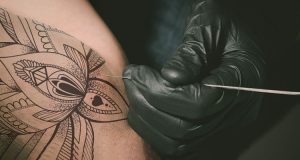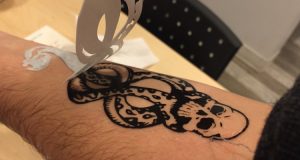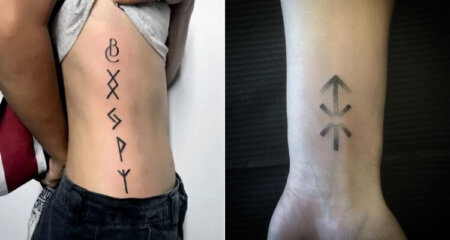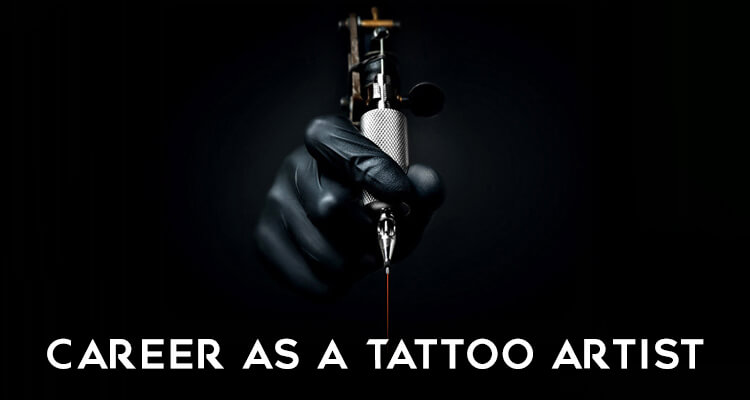
Tattoo Artist Career Guide: Salary, Skills And Job Outlook
Posted on
Not everybody in the world wants to follow the same old career paths. In fact, there are some who want to walk the road less traveled by. Though, breaking the normal trend of opting for medical, engineering, law etc. is not an easy task, but there are some free souls who do not love to bind by even their professions. It takes a lot of courage and determination to take up something that is not taken by many. But some are actually meant to do different professionally, they simply want to live their passion in the name of profession and one such profession is Tattoo Artist.
Tattoo artists are the ones who take art to a whole new dimension. If you also think that you’re not meant for 9-to-5 job, and have the courage to do different from the crowd, then you can think of a tattoo artist career.
TATTOOING – WHAT IS IT ACTUALLY?
Tattooing is an ancient art, an art, which belongs to many different cultures across the world. No more outlandish art, in fact, the craze for this peppy artwork has increased worldwide. Tattoos are both temporary and permanent. But temporary tattoos do not stay on the body after a certain period. Whereas, permanent tattoos stays forever on the body. More often than not people prefer to go for permanent tattoos.
It is believed that the oldest known tattoo on human skin to date is found between 3370 BC and 3100 BC. The Tattoos were first found on the mummified skin. Ötzi, the Iceman, who was reckoned between 3370 and 3100 BC, had 61 tattoos of simple dots and lines on various parts of his body, made with carbon ink.
Ötzi’s body was found in the Otzal Alps and hence he got this nickname Otzi after the name of the Alp.
Tattooing involves creating permanent or temporary images, symbols, or words on the skin. Tattoos are done by piercing the skin (of the area where you want your tattoo) with a small needle, through which ink is injected into the skin.
Evolution of Tattoo from Ancient to Date
Tattoos in some cultures were their inherent part, whereas, western countries took time to accept this beautiful body art. Basically the wonder happened only in the last fifty years. Only then tattoos became popular and mainstream.
Tattoos from ancient times to date has evolved to a great extent and yet so much to be witnessed in the coming years. The history of this art has always been great and fascinating. Tattoos were not socially acceptable until the mid-20th century. Until mid-20th century tattoos were basically reserved for a small population, especially for those who were in the entertainment industry.
There were myriads of popular styles throughout the 20th century, which evolved and then changed. Tattoos were mainly famous in western culture and now gaining popularity in almost every part of the world.
Tools Used for Creating Tattoos in Ancient Times
Earlier, tattoo tools were very different from the ones which are used today. Back then tattoo tools were made up of a variety of different materials.
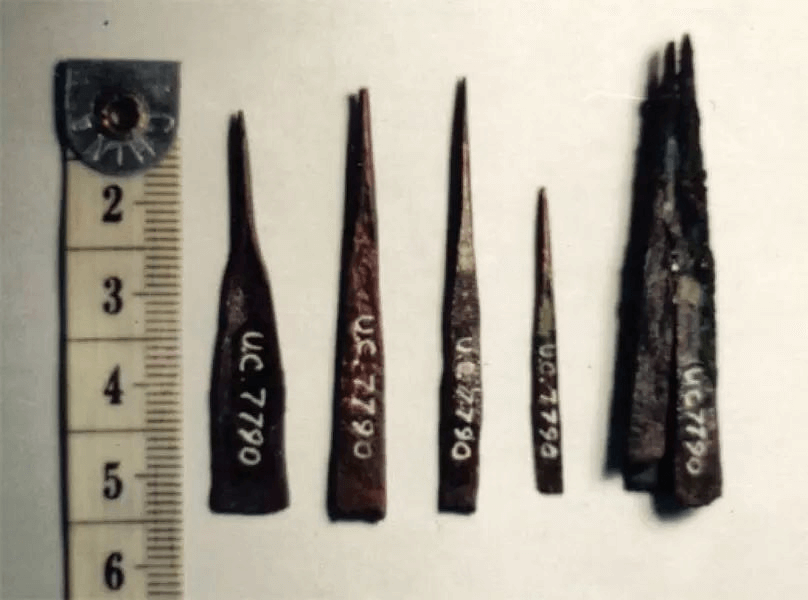
Believe it or not, tools which were used in Polynesia required two people to make a tattoo. And these tools were simply consist of a chisel and a hammer. To create a tattoo, the tattoo artist would make a series of little cuts in the skin and then after that the ink was hammered directly into the skin on the cuts. And the method was commonly known as ‘Stick and Poke’.
Similar techniques are used in tribal communities to get their bodies inked. Also, it is said that the ancient Egyptian tattoo needles were made from bronze. Needles back then came in different sizes, just to create both intricate and basic designs.
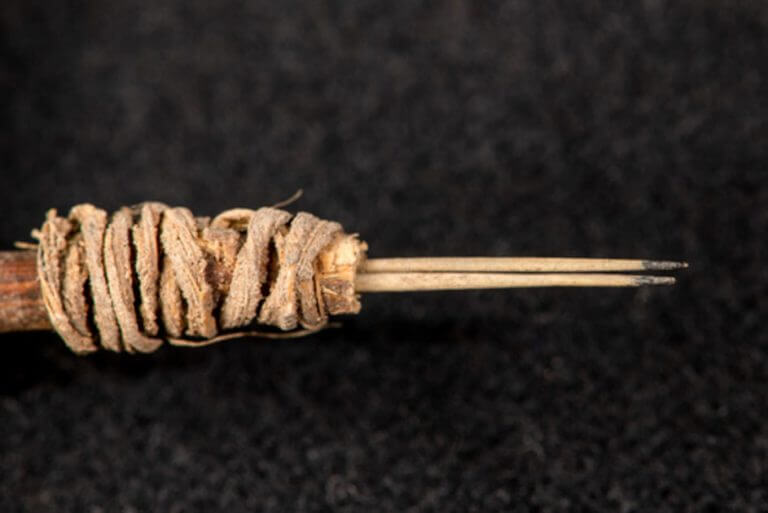
Tattoo ink was homemade, which were likely to be made from ash or soot, later mixed with oil or breast milk. However, Samoan tattoo ink is traditionally made from the candlenut which is smoldered on a hot fire. Finally, soot will be collected from the burning nut and then will be mixed with sugar and water.
Tools Used for Creating Tattoos in Modern Times
Today we have tattoo guns to do the needful. Basically was introduced in the year 1891 by Samuel O’Reilly. He was a New York Tattoo artist. His tattoo machine’s design was based on Thomas Edison’s invention the electric pen, an engraving machine while Samuel O’Reilly added needles and an ink reservoir to it.

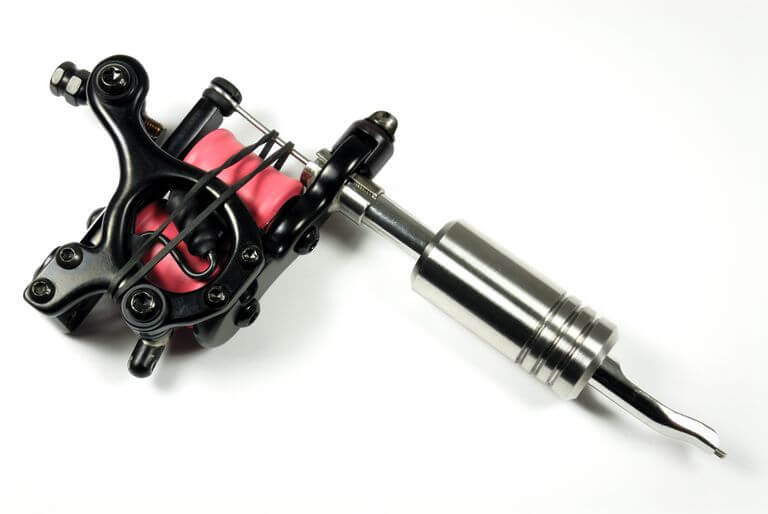
O’Reilly later patented the electric tattoo machine. We can say that this machine was also one of the causes for the increased popularity of tattoos.
Back then inks used in the guns were created by using mineral or geological sources. Black ink was made using iron oxide or carbon, and the red ink was made with cinnabar. Likewise, different shades of red, orange, and yellow were made using different cadmium compounds.
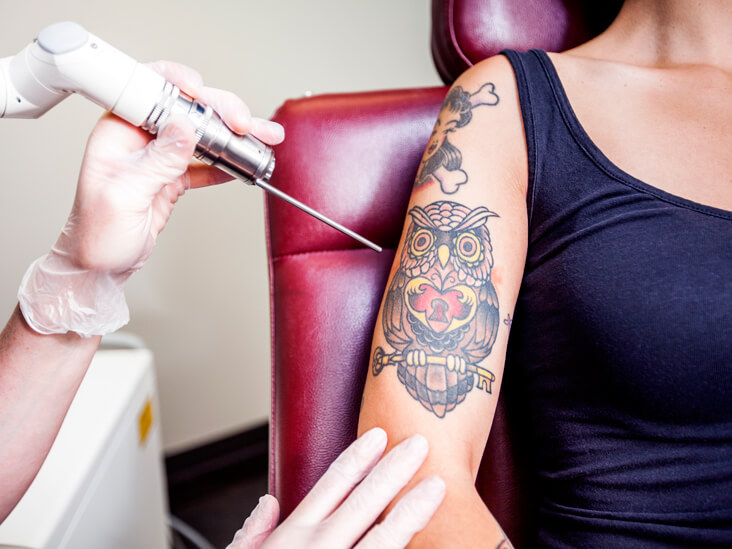
But today, we can see the major shift because of the advancement in the technology, now inks are formed using mineral-based pigments. These inks do contain a variety of fillers, preservatives and binding agents. Also, organic pigments are more in use today.
REQUIREMENTS TO BECOME A TATTOO ARTIST:

Entry Requirements:
The best thing about becoming a tattoo artist is that there are no specific requirements as such to become a tattoo artist. More often than not, tattoo artists are trained in an informal, more often unpaid, apprenticeship by some experienced tattoo artists or body piercers.
However, there are some art courses, which a tattoo artist can take forward. Especially, small business courses are often useful for those who want to have their own tattoo parlor in future.
Secondary Education:
To become a tattoo artist, there is no specific secondary education is required. If one is creative and have an interest in painting, photography, Maths, sculpture, printmaking (combined), te reo Māori, design and visual communication, and health to at least NCEA Level 1 can be very useful for a person who is interested to pursue his career in this field.
PROCEDURE TO BECOME A TATTOO ARTIST:
Of course, tattooing doesn’t require a technical or a general degree course, but it does require studying. However, to be a good tattoo artist, you need to:
- Learn the Basics of the Art of Tattooing
The art of tattooing is more than just inking the skin. For some tattoos can be purely cosmetic, and for others it can be a mark of status, or a symbol of bravery. There are many reasons people get tattooed, and these reasons vary from weaver to wearer. Person’s sentiments and emotions are attached to a tattoo.
Regardless of the reason, this art form has gained immense popularity over the past few decades, and the career field has exploded. Earlier, tattoos were taken as a symbol of shame, and now people take it as they way to self-expression. When you choose to be a tattoo artist, it is essential that you know the art inside out, the basic knowledge of the art is a must if you want to be proficient in the field.
- Acquire an Apprenticeship
Learning is a process, and being a tattoo artists learning never stops. Tattooing is not just an art, it is a commitment. Some artists however, consider taking courses online, at a community college, or a degree from a university to broaden their artistic abilities. There are some courses that you can opt for to become a tattoo artist. Courses such as:
- Fine arts
- Art history
- Color theory
- 2-dimensional drawing
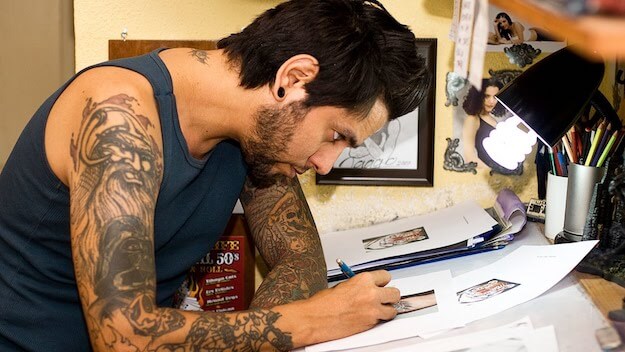
More often than not, tattoo artists learn by acquiring an apprenticeship. In order to gain an apprentice, you will have to have a portfolio that has sketches, photos, and drawings showing off your diverse artistry. A good portfolio consists of 50 to 200 sketches, it helps you showcase your ability to shade, a wise use of colors, show dimension, etc. You can start your career as a tattoo artist also by finding a tattoo apprenticeship on Jooble.
As an apprentice, you will learn about the different parts of the tattoo machine, cleaning or sterilizing the equipment, how to design tattoos, and operating a tattoo machine. Besides, you’ll learn about the tattoos on different parts, color application, etc. To find an apprentice you need to have great networking skills.
You can attend conferences, visit to tattoo shops, and participate in events. For some years you need to work for somebody else and learn the art completely. After years of tattooing, you can even open your own tattoo parlor. Proper licenses and permits are required to start your own parlor.
- Master the Fundamentals
To be a successful tattoo artist, you must be creative and have your fundamentals clear. You need to be able to draw everything from a flower to animals, geometric figure to skulls. Even artists who choose to specialize in only one form of tattooing, must be able to draw.
Creativity, manual dexterity, clear communicate with clients, and the ability to sit for long hours (because bigger tattoos can take hours) are the skills no tattoo artist can do without. Complete understanding about the machine, knowing the parts of the machine, how it works, different size needles, the impact of different size needles on the design, and the five ‘P’s’ of tattooing – proper assembly, proper angle, proper needle depth, proper strokes, and proper training.
Besides, knowledge about the sanitary aspects of tattooing; why alcohol and antiseptic solutions are required, why wearing glove is a must, skin diseases or infections and disease prevention, why you should disinfect the tattoo table or bench, and how germs and viruses such as HIV, Hepatitis, and other contaminants can harm both you and your client is required.
SALARY OF A TATTOO ARTISTS:
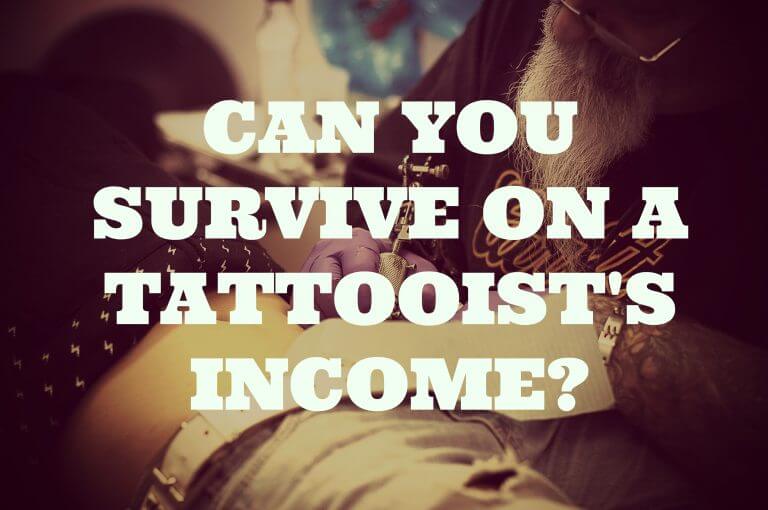
There is no fixed salary for a tattoo artist however, but according to job portals the average annual salary for a tattoo artist can be around $32,000 – $55,000. The salary is not constant, it varies based on the location, tattoo artist’s skills and much more.
JOB OUTLOOK:

To acquire a good level of experience and name in the industry fresher’s initially need to work in an existing tattoo parlor or body modification studio. Initially joining an existing studio or tattoo parlor help them gain experience and earn money.
After gaining a nice amount of experience a person can even think of starting his/her own tattooing studio. Before they plan to start a studio, it is mandatory to get the studio examined by the Health Department in order to ensure that they abide by all the rules and regulations required to start a tattooing studio.
JOB ROLE OF TATTOO ARTIST:
Tattoo artist’s job roles consists:
- To explain tattooing and piercing procedure to the clients
- To help clients choose images or design or jewelry based on their requirement.
- To help clients with the placement of the tattoo
- To copy the design or image for the clients
- To make stencils of those images
- To prepare and sterilize the area or the skin, where tattoo needs to be done.
- To prepare needles or fill in the ink in the needles or tools in order to create decorative, cosmetic or paramedical (covering scars or buns) tattoos.
- To pierce skin to etch tattoos or cut skin and insert jewelry
- To sterilize all the equipment and tools in order to make sure that the studio meets health and safety standards
SKILLS AND KNOWLEDGE:

It’s not easy though, to break the trend of opting for medical, engineering, law etc. One needs to have a lot of courage and determination to walk the road that is less traveled by. Here are the skills and knowledge that one needs to have to become a tattoo artist:
Related Search: The List Of Great Tattoo Courses And Schools
Creativity or Drawing Skills: First things first, creativity is the base of this wonderful profession. You need to be creative, have Drawing skills along with the ability to create different artistic styles and decorative tattoos.
Tattooing or Piercing Skills: One should be skilled and have complete knowledge of tools and equipment used for tattooing or piercing.
First Aid Skills: As, tattooing is the art that is done on the skin, and if at all something goes wrong it will directly harm the client’s health adversely. Hence, complete knowledge of first aid skills is a must for a tattoo artist.
Knowledge of Human Anatomy: Complete knowledge of human anatomy, how to prevent, recognize and treat infections that may occur while tattooing is a must.
Knowledge of disinfectants: Knowledge of disinfectants that are used to prevent any infection. Besides, Knowledge of health, safety, and hygiene is equally important to become a successful tattoo artist.
Business Management Skills: Tattoo artists who want to have their own tattoo parlor or piercing studio should have business management skills in order to run their business successfully in such a competitive environment.
Good Communication Skills: As I said, the tattoo industry is considered to be a service industry. So, it is imperative to build good and strong relations with your clients. Having good communication skills and giving the best work to your clients puts you in their good books and at the top of their recommendation list as well.
OTHER SKILLS:
Patience: Tattoos are done in different patterns, shapes, size, and designs. Sometimes for performing this artwork on someone’s body you may even need to sit for hours, and patience is a must. Most importantly not all clients are the same, some may even be difficult to handle, as tattoos are painful.
Flexibility: You need to have flexibility, so that you can create any design asked by the client.
Determination: It is almost impossible to succeed in any field without determination. And this field needs a little more amount of determination.
Tenacity: It is a must for your continual growth and success in the industry.
Detail-oriented: You can’t give anything to your client in the name of a tattoo. In fact you have to be detailed oriented, so that your clients are happy with your work. Tattooing is all about customer service, if your customers are happy with your work they will come back again, if they are not they will bad mouth about you. So, to be a detail-oriented helps you sustain in the industry.
WORKING HOURS:
Tattoo artists have no fixed work timings. In more cases than not, they have varied work hours, which includes late nights and weekends.
WORKING CONDITIONS:
Most tattoo artists’ begin their career from tattoo studios, beauty salons or cosmetic clinics. Tattoo artists can even be exposed to blood and infections.
And you are all set to become a great tattoo artist… Tattooing is a great career option for those who are creative and are born to live their passion!!


